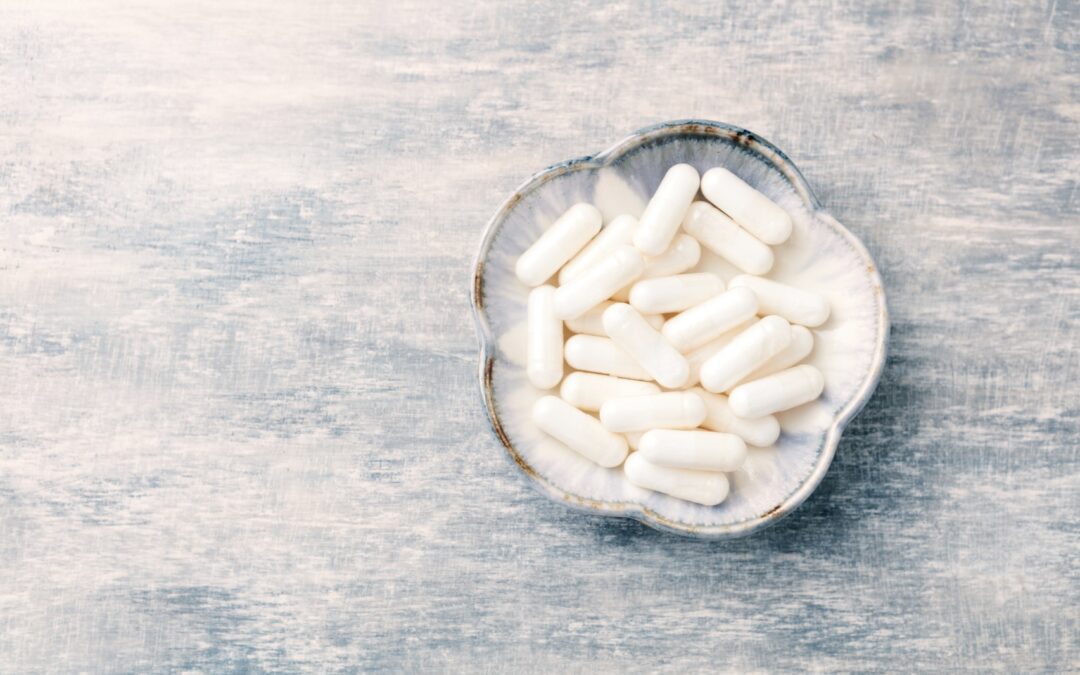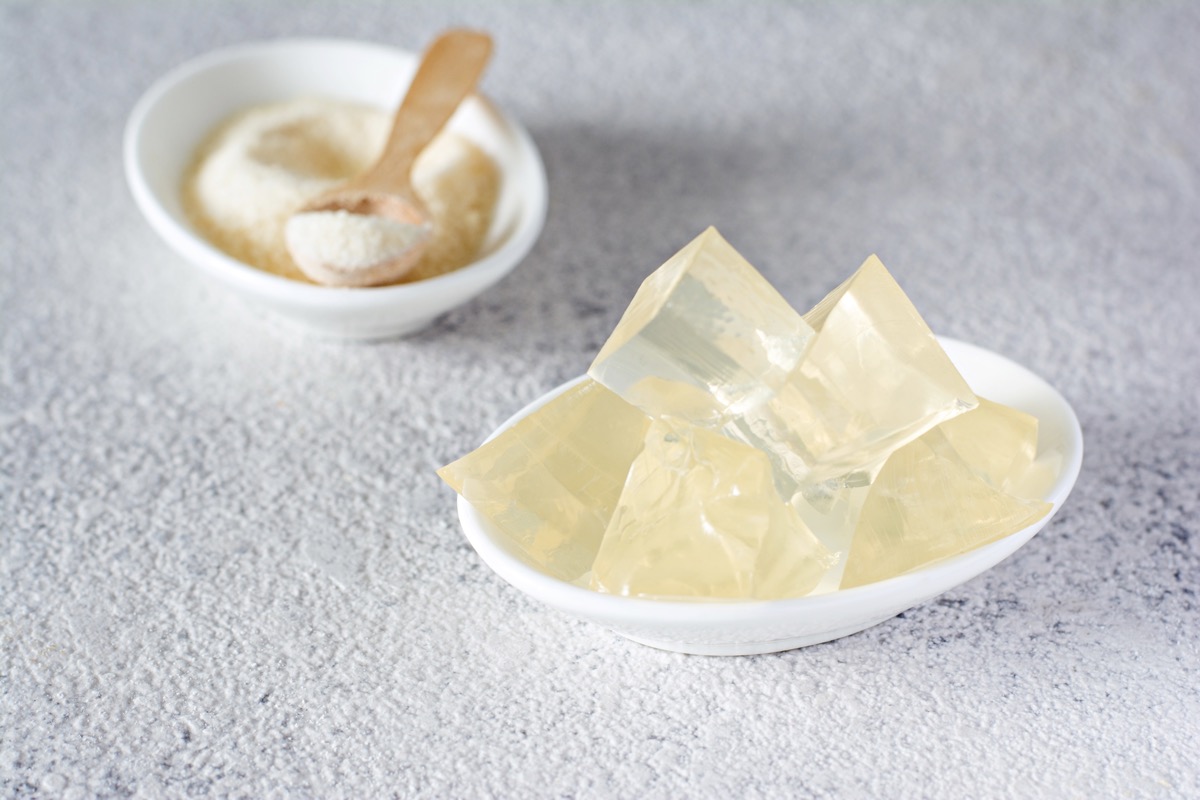Vanquish your insomnia with the amino acid glycine
Not being able to sleep is frustrating and sucks the joy out of life. Motivation and energy plummet, it’s challenging to concentrate, and you feel like you’re dragging yourself through life.
Natural remedies are popular treatments for sleep because they are non-addictive and don’t have the “hangover” like side effects of pharmaceutical medications. You’ve probably tried some of the popular ones like valerian, chamomile, melatonin, and magnesium. I’m going to introduce you to a sleep remedy that flies under the radar, the small but powerful amino acid glycine.
What is glycine?
Glycine is a simple, small amino acid with a mildly sweet taste. The Greek word for glucose, “glykys”, inspired its name 1. Glycine is the most abundant amino acid in the body.
How does glycine help sleep?
In the central nervous system, Glycine functions as an inhibitory (calming) neurotransmitter. Glycine slows down the firing of neurons reducing anxiety and protecting the brain from overstimulation. These are all desirable qualities to support deep, refreshing sleep. For those with a penchant for details, the mechanisms of glycine for sleep include:
- Reducing the time taken to get to sleep as objectively measured with polysomnography 2. Glycine decreases the core body temperature needed for promoting sleep.
- Improving sleep architecture and increasing restorative slow-wave (deep) sleep in the first part of the night.
- Decreasing episode of wakefulness during the night 3
- Reducing sleepiness and daytime fatigue 4
- Increasing the release of serotonin. Serotonin is the precursor of the sleep hormone melatonin. Serotonin also helps restore disrupted sleep cycles occurring with jet lag or shift work 5.
- Enhancing insulin sensitivity and increasing glutathione improves sleep issues caused by blood sugar dysregulation and inflammation 6.
- Improving daytime cognitive performance and alertness
Where do you get it?
Food sources
Being an amino acid, glycine is found in protein. The highest food sources of glycine include gelatine, red meat, fish, seafood, nuts, whey protein, eggs and beans.
Endogenous production
Your body can make glycine from the amino acid serine. Healthy individuals can produce up to 45g per day if the diet has adequate protein2. The reaction requires folate and healthy kidney function 7.
Why you might not have enough
Things that impair or increase the demands for glycine include:
- Ageing
- Arthritis
- Cancer
- Kidney impairment
- Liver disease
- High salicylate diet
- Vegan and vegetarian diets
- High blood sugar and diabetes
- Alcohol consumption**
**Alcohol targets glycine receptors which is one of the reasons people find it “relaxing”. However, moderate to heavy drinking also decreases glycine receptor sensitivity, with the net result of making it more difficult to wind down.
Glycine dosage for sleep
Adult dosage: 3-5 grams. Up to 9 grams has been used in studies but was no more effective than the 3-5 grams 4.
Mix the powder into half a glass of water. Glycine uptakes into the brain in 30 minutes after ingestion, so take between ½ to 1 hour before bed.
Glycine has a mildly sweet taste, so it is one of the more palatable supplements.
Glycine side effects and safety
Glycine is well-tolerated by both adults and children (adjust dosage accordingly). If you have kidney disease, check with your doctor before taking it.
Unlike many pharmaceutical sleeping aids, glycine does not cause daytime grogginess or changes to sleep architecture.
Glycine is non-habit-forming, and there are no withdrawal effects from stopping it.
It’s also usually compatible with pharmaceutical medications but always get the all-clear from your doctor before adding any new supplements.
Other health benefits of glycine
Anxiety
You can use glycine during the day for acute bouts of anxiety as it is calming and non-sedating. A pinch dissolved under the tongue can give relief within 15-20 minutes. Better anxiety management will also improve sleep.
Insulin sensitivity
Glycine improves glucagon secretion. Glucagon is a hormone that transforms stored glycogen in the liver back into glucose and helps stabilise blood sugar 6.
Antioxidant
Glycine can support the production of the master antioxidant glutathione, which is a crucial player in dampening inflammation 6.
Skin and bone health
Glycine makes up 1/3 of the amino acid content in collagen and elastin. These substances are essential to maintain the integrity and strength of skin and bone.
Glycine is safe, reliable and affordable. Have you used glycine for sleep? How did you find it?
If you enjoyed this you might also like:
Can low Vitamin D cause insomnia?
References:
- Razak MA, Begum PS, Viswanath B, Rajagopal S. Multifarious Beneficial Effect of Nonessential Amino Acid, Glycine: A Review. Oxid Med Cell Longev. 2017;2017. doi:10.1155/2017/1716701
- Bannai M, Kawai N, Ono K, Nakahara K, Murakami N. The effects of glycine on subjective daytime performance in partially sleep-restricted healthy volunteers. Front Neurol. 2012;APR(April):1-8. doi:10.3389/fneur.2012.00061
- Yamadera W, Inagawa K, Chiba S, Bannai M, Takahashi M, Nakayama K. Glycine ingestion improves subjective sleep quality in human volunteers, correlating with polysomnographic changes. Sleep Biol Rhythms. 2007;5(2):126-131. doi:10.1111/j.1479-8425.2007.00262.x
- Kawai N, Sakai N, Okuro M, et al. The Sleep-Promoting and Hypothermic Effects of Glycine are Mediated by NMDA Receptors in the Suprachiasmatic Nucleus. Neuropsychopharmacology. 2015;40(6):1405-1416. doi:10.1038/npp.2014.326
- Bannai M, Kawai N, Nagao K, Nakano S, Matsuzawa D, Shimizu E. Oral administration of glycine increases extracellular serotonin but not dopamine in the prefrontal cortex of rats. Psychiatry Clin Neurosci. 2011;65(2):142-149. doi:10.1111/j.1440-1819.2010.02181.x
- McCarty MF, O’Keefe JH, DiNicolantonio JJ. Dietary glycine is rate-limiting for glutathione synthesis and may have broad potential for health protection. Ochsner J. 2018;18(1):81-87. doi:10.1043/TOJ-17-0022
- Gropper S, Smith J, Groff J. Advanced Nutrition and Human Metabolism. 5th ed. Wadsworth Cengage Learning; 2009.

Need help with your sleep?
Norelle Hentschel is an experienced Naturopath with a clinic in Stones Corner, South East Brisbane and also offers Telehealth consults Australia wide. She enjoys supporting her clients to overcome insomnia and get deep, refreshing sleep.
Want more articles like this?
Receive a monthly digest of natural health information to help you become “health” sufficient!
PS. Your inbox real estate is precious, and we will never annoy you with sales pitches or share your details with anyone else. One email a month — that’s it.


